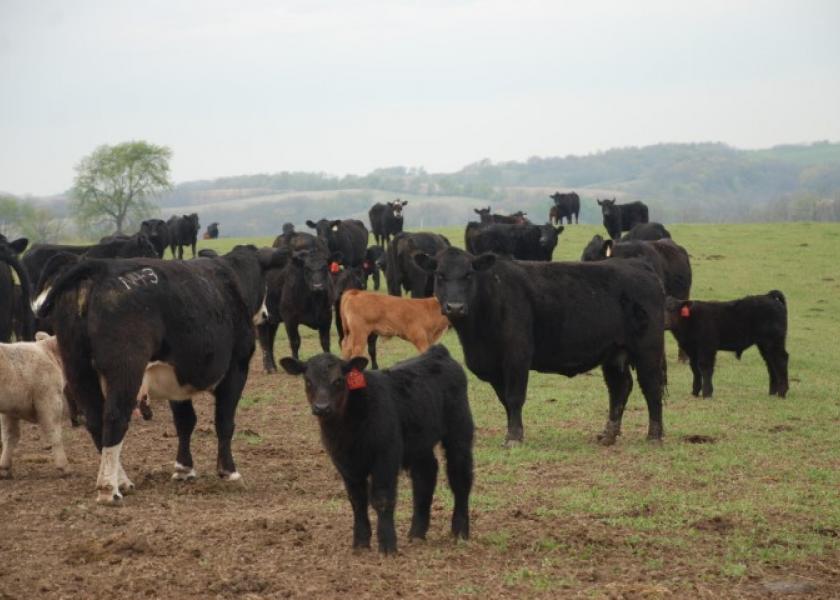5 Tips to Jump-start Calf Health this Calving Season

Producers go to great lengths to make sure newborn calves are well taken care of, and the end result can pay major dividends. The value of these calves has intensified with the record high cattle prices the industry is experiencing, and as a result newborn calf care has never been more critical.
Management of a calf at birth greatly affects lifetime performance. In addition to increased pre-weaning sickness and morbidity in calves that do not achieve adequate immune protection from their dams, calves can become immunocompromised and experience poor results later in life.
"There’s a lot of research that shows that when calves get sick with scours within the first 2-3 weeks after birth, it will greatly affect performance and morbidity levels," says Dr. Lance Kurz of Countryside Veterinary Clinic in Nebraska. "When the weather changes, we’ll start seeing some pneumonia in these young calves. Calves that receive adequate immune protection are better able to fight off diseases, like pneumonia, and keep growing. It all ties back to what kind of colostrum and the amount of immune protection a calf received at birth."
Dr. Kurz recommends these five key management practices to jump-start your calves this calving season:
1) Provide good nutrition for the cow: Healthy calves start with properly conditioned cows that are fed a high nutrient diet. Cows in proper condition will get off to a better start and will be better able to nourish their calves throughout the season.
2) Booster colostrum: Protecting the calf’s immune system is of utmost importance. Many factors can impact colostrum quality and intake, so supplementing with a USDA-approved antibody product like First Defense® will ensure that your calves have the immediate protection they need.
3) Calve in a clean area: During peak calving season, it’s not uncommon for multiple cows to be calving at once in the same area. The last thing you want is for that newborn calf to fall face-first into an environment filled with bacteria and pathogens. Keep the calving area as clean as possible to limit exposure to harmful pathogens.
4) Ensure the calf receives colostrum and supplements before intestinal closure: A calf’s ability to absorb antibodies starts to decrease almost immediately and is done by 24 hours old. Provide your calves with colostrum and supplements as soon as possible after birth to provide immediate protection.
5) Move calves from calving area as soon as possible: Calving areas, when not carefully managed, can be a hotbed of damp, unclean bedding. Move your calves to a clean, dry area with adequate protection from wind as soon as possible after birth.
All of these tips can help get your calves off to the right start, but Dr. Kurz says no management practice is as important as getting antibodies to calves immediately after birth.
When asked why Dr. Kurz recommends using USDA-approved antibody products with colostrum, he says, "These calves are worth a lot of money right now, and it’s an insurance policy to get your calves started right. Calving areas get used over and over, and pathogens build up in the calving pens. USDA-approved antibody products are a great way to give calves extra protection."
Make sure your calves are on the path to success this calving season by providing them with immediate immune protection. A management plan that incorporates good cow nutrition, proper colostrum management and supplementation, a clean calving area and adequate protection outside of the calving area, will help your calves perform later on.
Source: ImmuCell Corporation







